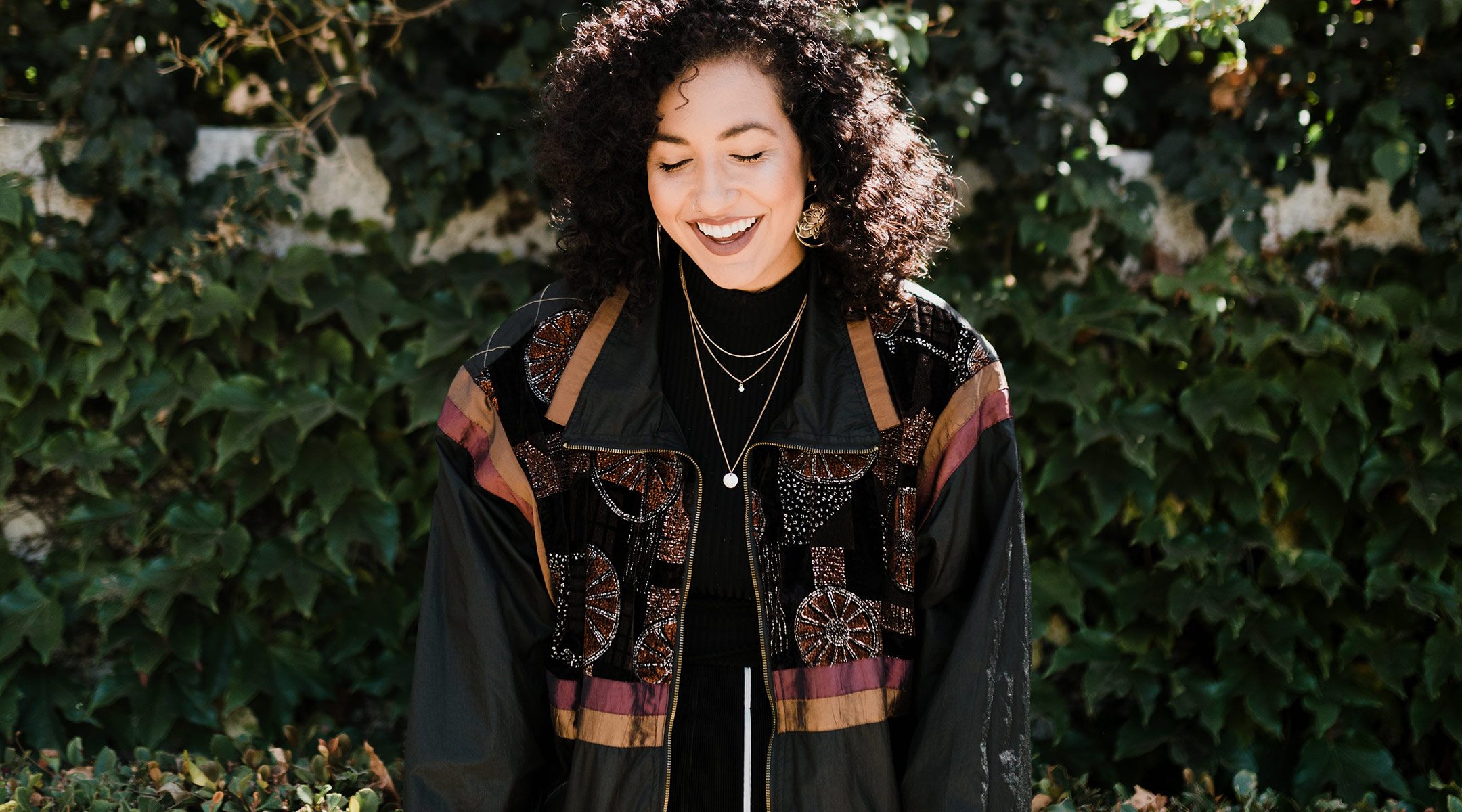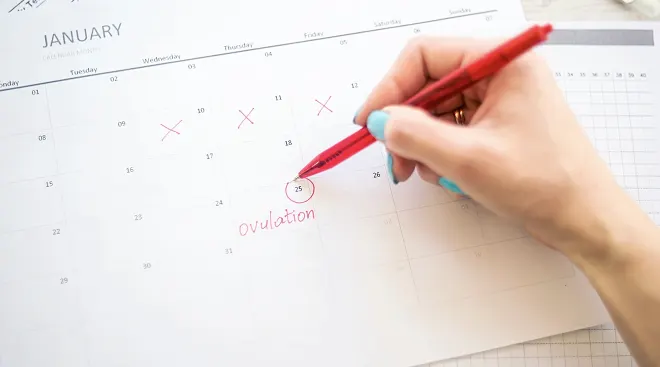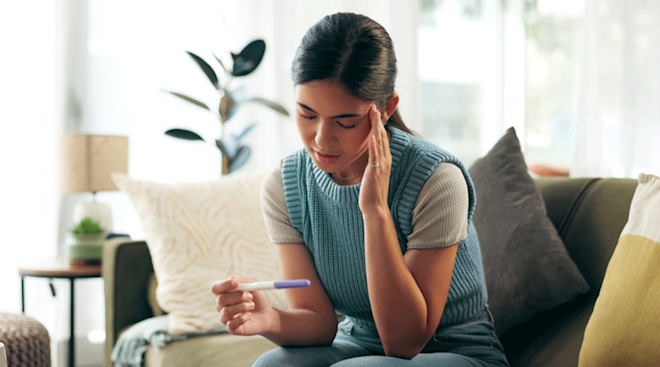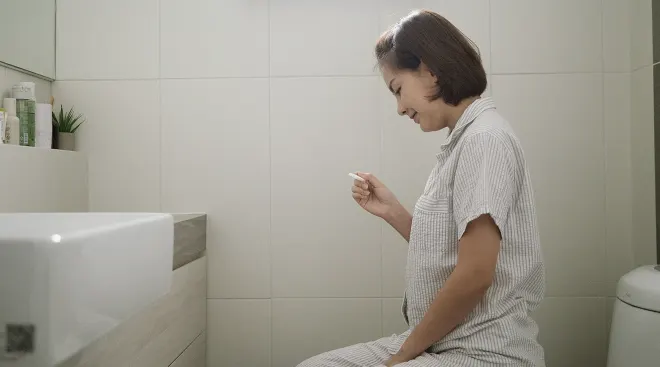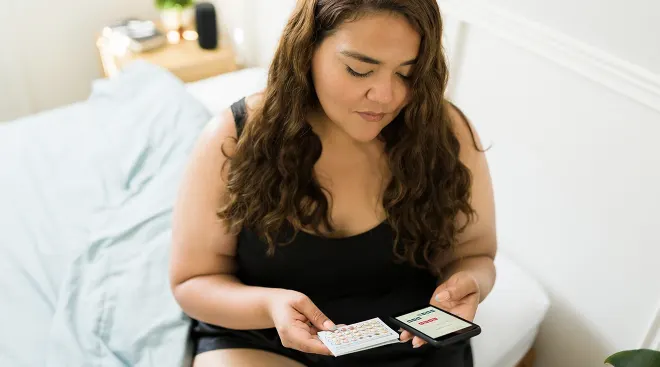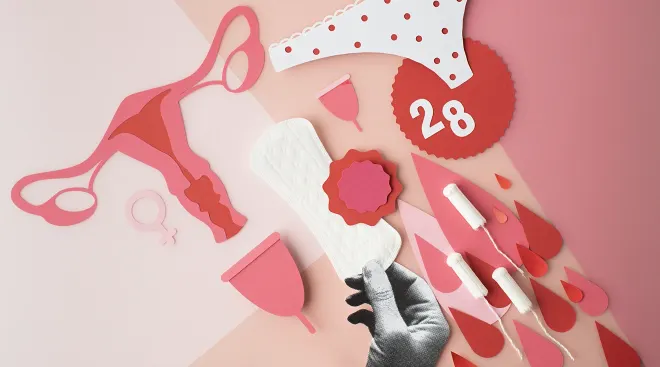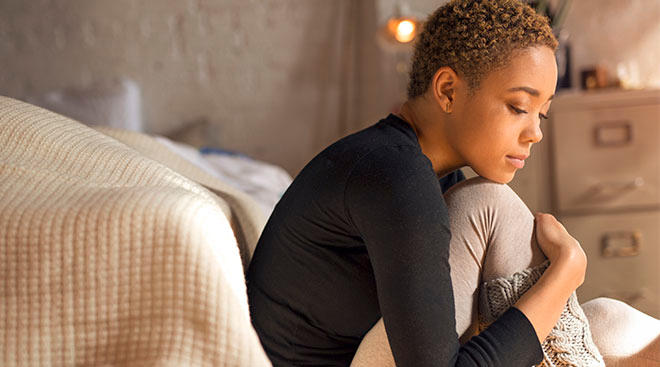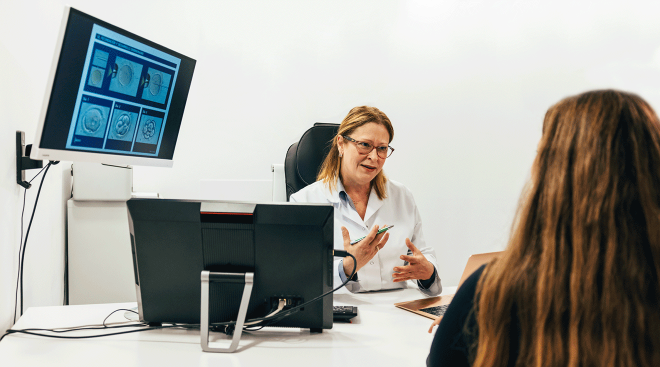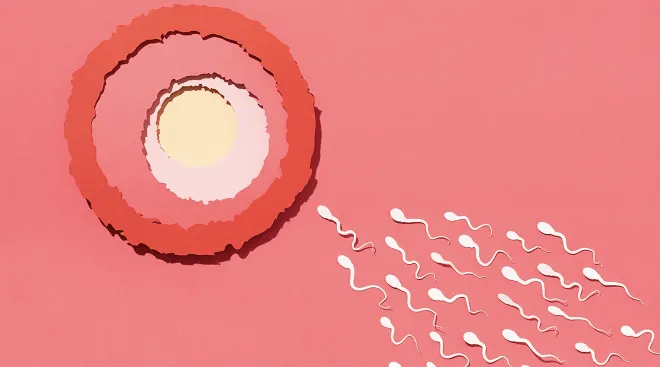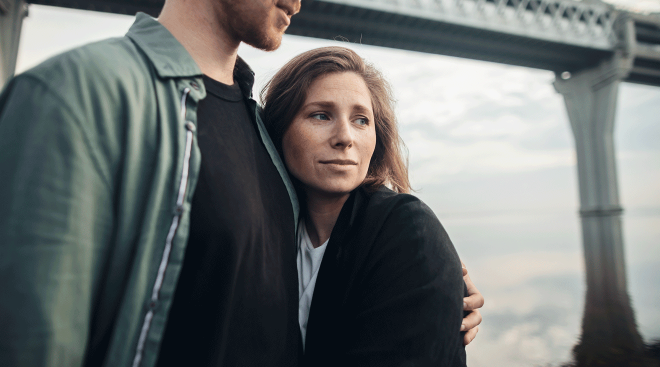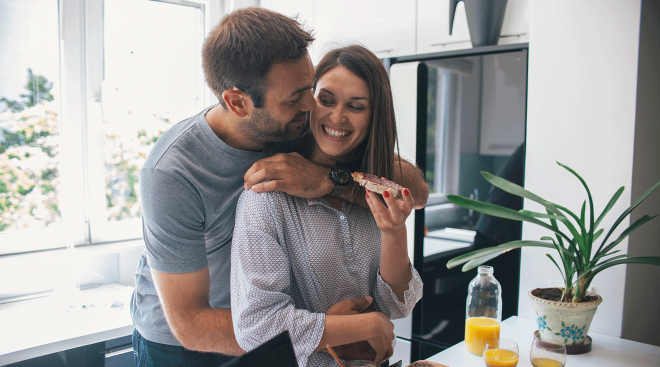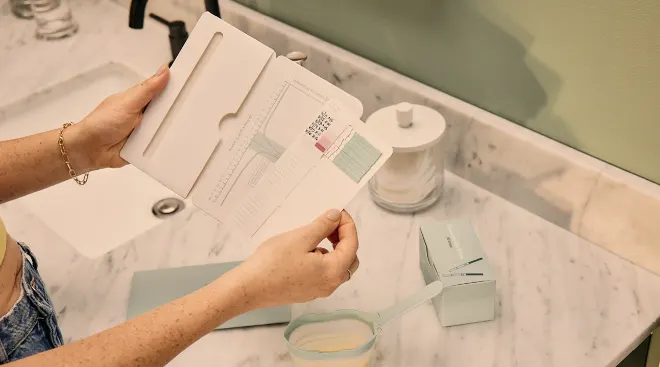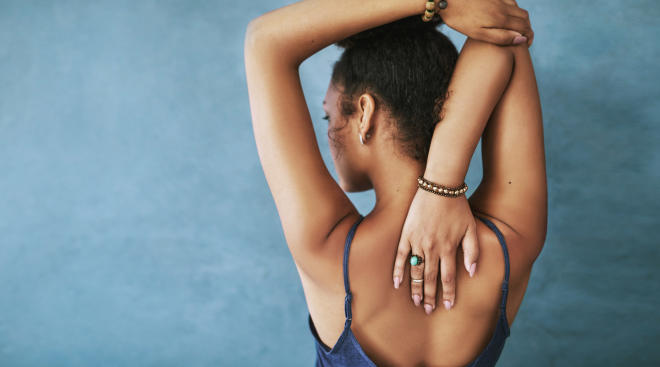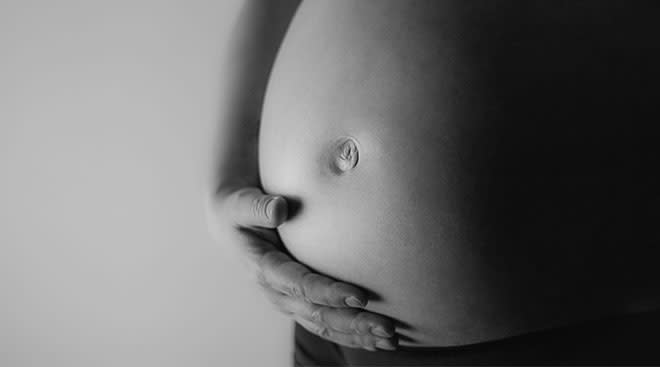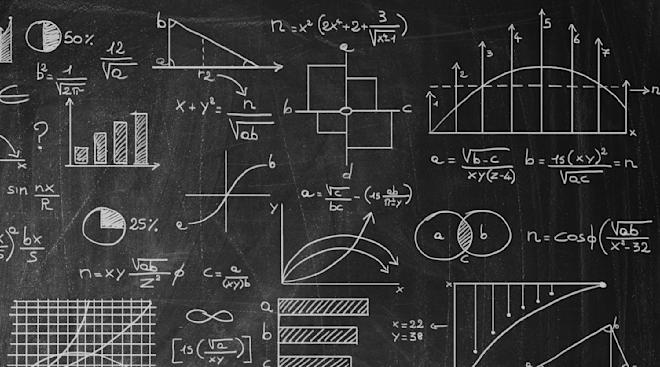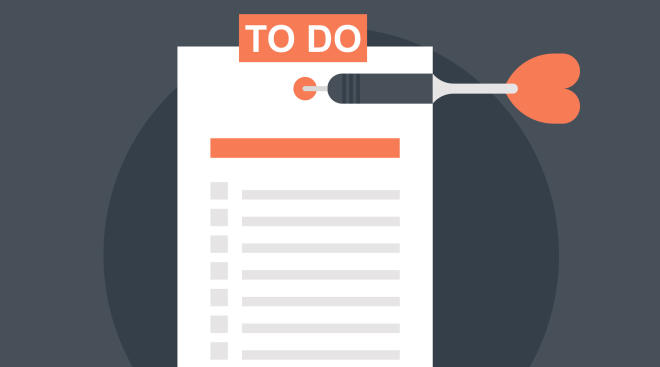How to Boost Your Fertility in Your 30s
Giving up gluten. Drinking green juice. Acupuncture treatments. Click through social media and you’ll find a million solutions for increasing fertility in your thirties. But which ones actually work? How much control do you really have over your fertility as you approach your thirties?
First, a biology brush-up: Women are born with a finite number of eggs, explains Thomas A. Molinaro, MD, MSCE, FACOG, a reproductive endocrinologist at the Reproductive Medicine Associates of New Jersey (RMANJ). “As women age, egg quality and quantity declines. This means that your cycles may become less regular, and you may have some cycles where no egg is released. There may also be an issue with the quality of the eggs, which could make it difficult to conceive.”
While there’s no way to increase the quantity of your eggs, there are steps you can take to try to improve your fertility. That said, if you’re having difficulty conceiving—defined as trying for a year for those under 35 and six months for those over 35, it’s a good idea to speak with your doctor, who may refer you to a fertility specialist for individualized treatment. Here, some general tips for how to potentially boost fertility in your thirties:
Even if you’re not pregnant, it may be a good idea to switch to mocktails now. While research on the effect of alcohol and female fertility is inconclusive, research suggests long-term, heavy use of alcohol may affect sperm motility in men. Plus, it can be a smart strategy for those first early weeks of pregnancy when you may not know you’re pregnant yet but the embryo is beginning to develop.
In studies, women with a low or high BMI had a harder time conceiving than women whose BMI was in a healthy range. Talk to your doctor about your weight and its’ impact on your fertility; they can help you come up with a plan to lose or gain weight in a healthy, sustainable way.
Time to say goodbye to briefs and hello to boxers. Some studies have found that men who wear boxers have a higher sperm concentration and total sperm count than those who don’t. It’s also a good idea to have your male partner avoid placing his laptop directly on his lap or spend too much time in hot tubs. That’s because heat can impair sperm formation, explains Kecia Gaither, MD, MPH, FACOG, a maternal fetal medicine specialist.
While there’s some research on the effects of so-called fertility diets, experts say there’s no conclusive evidence that specific dietary changes have an effect on fertility for all women. Some general guidelines that have been proven: Diets high in unsaturated fats, whole grains, veggies and fish have been associated with higher fertility outcomes for women and men. Remember: It takes two to make a baby, and these changes may also be beneficial for sperm function, Gaither says. Meanwhile, in the same comparative study, researchers found that diets high in sugar and saturated fats had lower fertility outcomes. Of course, before you embark on a diet, double-check with your doctor.
“Fertility treatment can be stressful,” Molinaro says. While you may have a pal who swears her yoga class helped her to conceive—and there are even yoga classes designed specifically to improve fertility—yoga alone has not necessarily been proven to provide a boost. What has been proven is that yoga can reduce stress levels. “Since stress can impact fertility, focusing on stress reduction may be beneficial,” explains Molinaro. Whether it’s yoga, meditation or some other form of self-care, find a way to relax that works for you.
Exercise may be too much of a good thing when it comes to getting pregnant in your thirties. Some studies have found that intense exercise may inhibit conception because it may cause you to skip ovulation or experience implantation failure. That said, sedentary behavior has also been linked to infertility. Discuss your workout routine with your doctor, who can suggest whether to slow down or step it up.
Do you have to totally give up your morning cup of joe? Not necessarily. But if you mainline sodas and espressos all day, you may want to cut back. Studies have found that overdoing it on coffee (consuming more than 300 mg a day, or the equivalent of more than one tall Starbucks coffee) may impair fertility.
Folate is a critical mineral during pregnancy, but it may play a role in preconception as well. During pregnancy, adequate folate can help decrease the risk of neural tube defects like anenecephaly and spina bifida. That’s why it’s recommended that women of childbearing age take folic acid, the manmade form of folate, especially if they’re trying to conceive. One study examining the role of folate and folic acid in patients undergoing assisted reproductive technology (ART) found supplemental folate was associated with higher live birth rates. Ask your doctor for a folic acid supplement recommendation, and add folate-heavy foods like eggs, leafy greens, beans, legumes and berries to your diet.
If you don’t regularly track your cycle, it’s a good time to start, even if you’re not ready to conceive immediately, Molinaro says. That’s because your cycle may shift as you hit your thirties. How to track: Day one is the first day your period starts. The last day is the day before your next period begins. For most women, ovulation generally happens 12 to 14 days before your next period begins. The optimal time to conceive is two to three days before ovulation begins and the day of ovulation itself. Do you need to buy an ovulation tracker? Not necessarily, according to Molinaro, who says charting your cycle can be an adequate tool. You can also monitor your basal body temperature, which will dip and then sharply rise when ovulation occurs.
If you’re trying to conceive in your thirties, aim to get busy once every two days. “There’s this misconception that you must have sex the day you ovulate, when that’s not necessary for conception,” Molinaro says. “Some people are also concerned that if they have sex every day, it may decrease the efficacy of sperm, but there’s not a lot of research on whether or not that’s the case. Once every other day should cover your bases—plus, it’s still fun that way and not a chore, which isn’t what you want trying to conceive to become.”
While it’s true some health shifts can affect fertility in your thirties, there may be other factors beyond your control. For example, there could be issues such as scarring in your uterus or fallopian tubes, or your partner could have a blockage or abnormal sperm function—something no green juice can fix. It’s important to loop your doctor in if you’re having trouble conceiving in your thirties, since your doctor can help you understand potential causes, treatments and strategies. “Some patients have the idea that once you see a fertility specialist, you’re automatically on the road to IVF treatment, when that may not be the case,” Molinaro says. Sometimes, it’s as straightforward as getting medical insight into your menstrual cycle. And if IVF does seem like a necessary tool, partnering with a doctor you like and trust early on in your conception journey can help you make sure any questions or concerns are answered.
Published August 2019
Please note: The Bump and the materials and information it contains are not intended to, and do not constitute, medical or other health advice or diagnosis and should not be used as such. You should always consult with a qualified physician or health professional about your specific circumstances.
Plus, more from The Bump:
Navigate forward to interact with the calendar and select a date. Press the question mark key to get the keyboard shortcuts for changing dates.
































